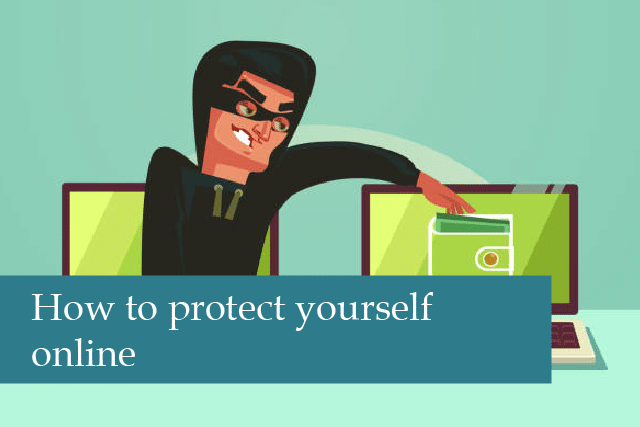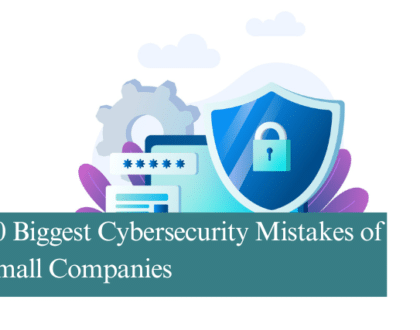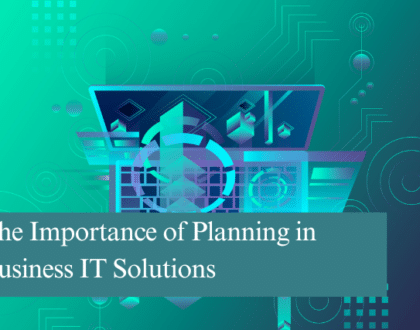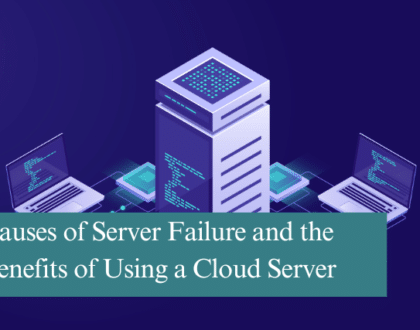
We all share a lot of information online, whether we’re shopping using our debit card details, posting on social media or applying for jobs. If we’re not careful this can leave us incredibly vulnerable and in the worst instances this leads to identity theft and empty bank accounts.
Fortunately there are a number of ways that you can protect yourself online. Here’s some best practices you can follow to minimise any risks when using the internet.
Observe good password practices
Often the only thing that separates our data from malicious individuals is a password so it is surprising that in 2019 people are still not following best practises when it comes to password security.
Every password you use should be unique to that account so that if Facebook account is breached you won’t have lost your Pinterest and Instagram accounts too. Your passwords should also be strong, using a mix of letters, numbers and characters. This can be a pain to remember so we wrote a post about creating strong passwords and remembering them here.
Protect your email account
Your email account is now the most important piece of your identity when you’re online. If your email account is compromised it is simple for fraudsters to reset your password or “confirm your identity” to pretty much every other account you have online.
For this reason it’s important that you at the very least use a unique password for any email addresses you have. Even better – enable two factor authentication. Although inconvenient at times, two factor authentication protects your account even if somebody knows your password. Normally this means you’ll be sent a text with a code to confirm it’s you logging in.
Be aware of social engineering and phishing
Over recent years social engineering and phishing emails have become more sophisticated and prolific. Social engineering is the term given to emails that pretend to be friends, family or businesses that you have a relationship with. They have the sole aim of stealing your personal information, whether this be your password, bank details or date of birth.
You should always be critical of any emails you receive. If you are sent a strange link or attachment by a friend always be sceptical before clicking or downloading. Don’t disclose any information in response to an email apparently from your bank or favourite shop – no organisation will ever request that you enter your password or personal information via email.
This isn’t a problem that is limited to the public either. Businesses are increasingly being targeted by social engineering attempts. If you run a business you should ensure your staff members have access to a resource like this one and that they are sufficiently trained on the risk that phishing attempts pose.
Guard your personal information (don’t overshare)
With the amount that we post about ourselves online on social media it’s now incredibly easy for fraudsters to get a comprehensive picture of your routines, likes and dislikes and more.
It’s a great idea to routinely go through your social media profiles and delete any disclosures of personal information that you find. While your at it, ensure that your privacy settings are configured so that strangers cannot view your personal information. Always be careful about who you add on social media.
Antivirus and updates
A very basic step towards protecting yourself online is to ensure that you have some form of anti virus software set up. This will notify you of malicious websites and scan your files to ensure that there is nothing malicious hidden inside.
Equally, it’s important that you keep all of your software and hardware kept up to date. As vulnerabilities are identified in programmes, companies release updates that protect you from any related issues. Keeping your software and operating system up to date means that you benefit from this level of protection.
Monitor your accounts
Another simple good practise to follow is to check your bank accounts regularly. If you’ve followed all of the steps in this post and still become a victim of online fraud at least you’ll know about it quickly and prevent any further losses. Take advantage of mobile banking apps to quickly and easily check your accounts on the go.
Back up regularly
The final step in protecting yourself online is more of a safety net. Backing up your computer regularly means that if your device does end up getting infected it is quite simple to restore your data.
There are many automatic backup solutions available however copying your files and data to a USB hard drive is just as effective. Just remember to do this regularly so if you are infected you don’t lose much of your work.
Report it
Finally, if you do encounter an online fraud attempt or do become a victim, it is really important that you take a moment to report it to Action Fraud. Although this might be the least of your concerns, reporting scams and online fraud provides more information to those that are tasked with preventing other people from being caught out too. The more of us that report to Action Fraud, the more chances there are of the bad guys getting caught.
To learn more about how you can report scams and fraud, click here.
If your business requires support around your IT security, we offer a number of FREE reviews for businesses every month. This allows us to audit your existing operations and provide guidance and support around how you can improve the efficiency, security and reliability of your IT systems. Find out more.
Recommended Posts

10 Biggest Cybersecurity Mistakes of Small Companies
18th April 2025

The Importance of Planning in Business IT Solutions
11th April 2025

